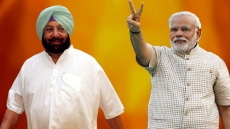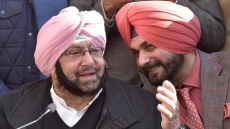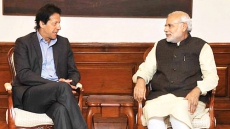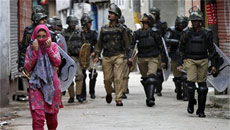The Supreme Court, in a unanimous judgment, on Wednesday rejected tge preliminary objections raised by the Central government and as a result, will hear the Rafale review petitions on merits. The court will also look into the published documents.
The court rejected the Centre's claim of privilege over the three documents that were annexed by former Finance Minister Yashwant Sinha, journalist Arun Shourie and lawyer Prashant Bhushan in their plea.
"We deem it proper to dismiss the preliminary objections raised by the Union of India questioning the maintainability of the review petitions...
"... we hold and affirm that the review petitions will have to be adjudicated on their own merit by taking into account the relevance of the contents of the three documents, admissibility of which, in the judicial decision making process, has been sought to be questioned by the respondents in the review petitions," said the judgment by CJI Ranjan Gogoi and Justice Sanjay Kishan Kaul.
Justice K.M. Joseph, in his separate but concurring judgment, said: "...the case does not strictly involve in a sense the claim for privilege as the petitioners have not called upon the respondents to produce the original" and pointed out that "the state does not take objection to the correctness of the contents of the documents".
The three documents, over which the Centre had claimed privilege, are an eight-page note June 1, 2016 written by three members of the Indian Negotiating Team on the Rafale deal; Note 18 of the Defence Ministry marked secret under the Official Secrets Act; and Note 10 written by Defence Ministry's Deputy Secretary on November 11, 2015 and marked secret under the Official Secrets Act.
Sinha, Shourie, and Bhushan had annexed three documents with their two pleas - seeking the review of the court's December 14, 2018 judgment giving a clean chit to the government in the decision-making process and an application alleging perjury against government officials for misleading the court and suppressing material information relating to the Rafale deal.
The judgment, both by CJI Gogoi and Justice Kaul and by Justice Joseph, noted that the three documents annexed by the petitioners have already been published by The Hindu and other media outfits.
The three documents on which the Centre is claiming privilege, CJI Gogoi said in his judgment, was published in the Hindu on different dates in February 2019 and one of the documents was published by news portal "The Wire".
Rejecting the claim of privilege over the three documents, the court said that the Section 123 of the Indian Evidence Act, 1872, relates to unpublished public record and the three documents under contention have already been published by the Hindu newspaper.
A claim of immunity against disclosure under the Indian Evidence Act's Section 123, CJI Gogoi, also speaking for Justice Kaul, said "has to be essentially adjudged on the touchstone of public interest and to satisfy itself that public interest is not put to jeopardy by requiring disclosure, the Court may even inspect the document in question though the said power has to be sparingly exercised".
"Such an exercise, however, would not be necessary in the present case as the document(s) being in public domain and within the reach and knowledge of the entire citizenry..."
The court refused to go into the matter further, observing that "the claim of immunity under Section 123 of the Indian Evidence Act is plainly not tenable..."
Justice Joseph brushed aside the Centre invoking the provisions of the Evidence Act, the Official Secret Act, and the exemptions under the Right to Information Act to claiming privilege over the three documents, and their removal from the case records.
"Section 8(2) of the Act manifests a legal revolution that has been introduced in that, none of the exemptions declared under sub-section (1) of Section 8 or the Official Secrets Act, 1923 can stand in the way of the access to information if the public interest in disclosure overshadows the harm to the protected interests," he said.
Citing Section (8) of the RTI Act, Justice Joseph said: "It is clear that Parliament has indeed intended to strengthen democracy and has sought to introduce the highest levels of transparency and openness."
"With the passing of the Right to Information Act, the citizen's fundamental right of expression under Article 19(1) (a) of the Constitution of India, which itself has been recognised as encompassing, a basket of rights has been given fruitful meaning."




